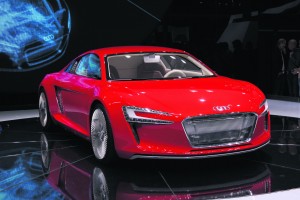SATURDAY, 29 JANUARY 2011
Is your local mp interested in science? If you voted in Cambridge the answer is a resounding yes. Dr Julian Huppert was a researcher at the Cavendish Laboratory before being elected to the House of Commons. Being an MP with scientific training to degree level, however, he is very much in the minority.Despite this, our politicians are increasingly required to debate high-level scientific and technical issues. How should the NHS choose which cancer treatments to fund? Is current internet regulation adequate? And one of the questions I grappled with this summer—could the use of electric vehicles really reduce the UK’s carbon emissions? In May 2010, a few days after the general election, I began a three-month fellowship at the Parliamentary Office of Science and Technology (POST) under a scheme open to PhD students. POST’s purpose is to inform MPs and peers on scientific issues which are of relevance to policy. This is primarily achieved through the publication of four-page briefing documents on particular topics, called POSTnotes. My topic was Electric Vehicles, and my POSTnote was published in October.
The quickest way to become an ‘expert’ on a totally new topic (my PhD being nothing to do with electric vehicles) is to talk to the people who are. So, amongst others, I interviewed representatives from the automotive and energy industries, professors of engineering, and civil servants from the Department for Transport. I tried to guess the first questions an MP would ask about electric vehicles. They would probably be more interested in immediate practicalities—‘what can the technology do now?’—than the wide range of future possibilities being considered by researchers. Other areas of direct relevance to policy—which, coming from a scientific perspective, I had not at first considered—include current consumer opinion and the potential impact of electric vehicles upon the UK automotive industry.
MPs are expected to appear well-informed when quizzed on just about anything. A POSTnote therefore aims to give concise background information on a topic and then highlight for parliamentarians key areas which will need to be considered when policy is being made. POST has an impressive back catalogue of notes available on their website, from ‘CO2 Capture, Transport and Storage’ to ‘Diagnosing Dementia’.
Of course science is not and should not be the only consideration for policy makers. The level of social acceptance arguably plays a greater role in illegal drugs policy than the scientific evidence of their relative harms; whether this is right or not remains a matter for debate. However, in our increasingly technological world, science can make a real contribution to better policy making. It can help politicians foresee future problems, such as the effects of climate change, as well as future economic opportunities. Technology can aid better policy implementation—it will play a critical role in the 2012 Olympics. Finally, scientific knowledge is used to directly improve people’s lives in healthcare.
MPs are not the only non-specialists who benefit from accessible science. However, academic scientists tend to write primarily for other academic scientists. In part, this reflects the time and dedication required to understand scientific findings. There may be a feeling that too much would be lost in writing for the lay person. I myself wondered this summer whether it was misleading to give someone the impression that they had covered all there was to know about a subject in four pages. However, working at POST has convinced me that it is possible to get to the point in plain English, while still highlighting areas of uncertainty and complexity. Hopefully I went some way towards achieving this.
You can read Rosie’s briefing on electric vehicles at http://www.parliament.uk/post where you will also find further details on POST’s fellowship schemes.
Rosie Robison is a PhD student in the Department of Applied Mathematics and Theoretical Physics

